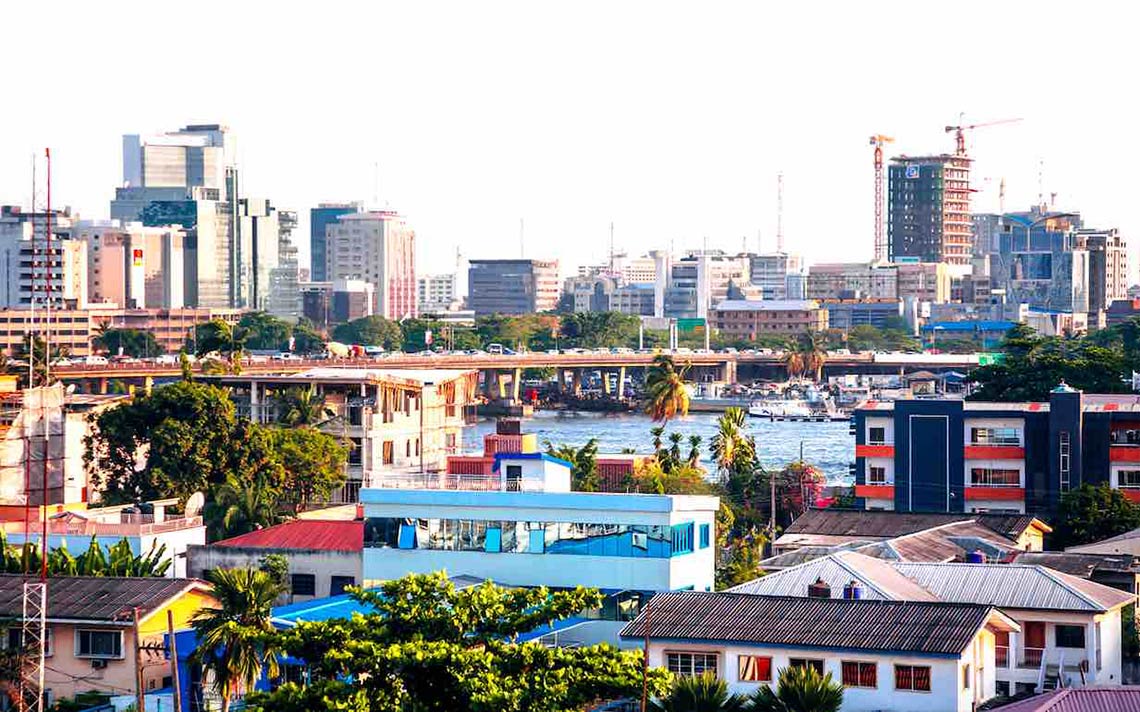Marktonderzoek in Nigeria
Nigeria is the most populous country in Africa and is also an economic powerhouse.
With exports amounting to billions of dollars to countries like India, Spain, France and The US, Nigeria has a lot to offer investors.
Nigeria’s Strategic Industries
Here are four of the main industries driving Nigeria’s economy.
1. Oil and Gas
The oil and gas industry is Nigeria’s best-known source of income. Earnings from this industry are what propelled the country to the top of Africa’s economy. To stop over-relying on oil, efforts are being made to diversify the economy’s income sources.
2. Toerisme
Nigeria attracts tourists due to its wildlife and diverse landscape. It also has sandy beaches as well as tropical jungles. Local entertainment events also attract tourists when Nigerian celebrity musicians are performing.
3. Landbouw
Employing over half of the labor force, the agriculture industry produces cash crops such as cocoa, palm oil, corn, rice, cassava, yams and rubber. Agriculture is primarily carried out in the southern parts of the country where the climatic conditions are conducive.
4. Information Communication and Technology (ICT)
With a growing number of ICT professionals creating and supporting the information systems, this sector is one of the fastest-growing in Nigeria. The country is also working towards increasing internet connectivity to further improve the industry’s contribution to the economy.
Business Opportunities in Nigeria
Which sectors are the most promising for business investors?
1. Agriculture
Despite years of enjoying gains from the agriculture industry, labor is still manual. This affects productivity and mechanization is urgently needed. Efforts to grow the sector have seen the government empower and fund the Bank of Agriculture to improve credit availability.
2. Energy
Nigeria lacks the capacity to refine its oil and exports much of it in the form of crude oil. This results in losses in potential revenue. Investing opportunities in this sector include setting up a refinery, oil and gas transport and even gas stations.
3. ICT
Nigeria is seeing growth in e-commerce, remote working, use of collaboration tools and the use of Artificial Intelligence. These activities put pressure on the current IT infrastructure. With the government pushing for more growth, savvy investors can benefit from incentives.
4. Entertainment
With many internet users looking for entertainment content, the Nigerian market provides a huge opportunity for content creators and distributors. Movie production and video on demand services will be a welcome addition to the local entertainment offering.
Challenges Facing Nigeria’s Economy
With all the good that Nigeria has to offer, some challenges hold it back and could potentially discourage foreign investments.
1. Corruption
Corruption is a major problem in Nigeria. Both locals and foreigners have called for bolder steps in fighting this vice. Despite government efforts, progress is slow. Virtually every sector of the Nigerian economy, from politics and sports to education, is impacted by corruption.
2. Ever-changing Government Policies
With every new administration comes a different policy on how to improve the economy. This creates confusion and slows down development. It becomes difficult to make long-term plans because businesses cannot know what to expect after every election.
3. Pollution
The handling of the country’s biggest foreign exchange earner has been causing massive pollution. Oil spills in the Niger Delta have damaged vegetation and agricultural land with no effective effort from the government or oil industry stakeholders to deal with the issue.
4. Terrorism
Nigeria’s economy has been affected by the activities of the terror group Boko Haram. This ISIS-affiliated group has carried out numerous kidnappings and murders as it seeks to control the whole country. This has led to the country being perceived as unsafe, especially for foreigners.
5. Power Outages
Doing business can be expensive in Nigeria due to frequent power outages. These reduce the profits of small businesses as they seek alternative energy sources which are expensive. Big corporations also register high operating costs as they have to invest in power generators.
Nigeria’s Business Location Hubs
Topping the list of best places to start and run a business in Nigeria is Lagos. As the commercial hub of the country, Lagos has both natural resources and infrastructure to support business.
As the federal capital of Nigeria, Abuja boasts of modern amenities, a growing population and a high per-capita income. Other cities investors choose for business include Kano and Port Harcourt, a port town and capital of Rivers state.

About Market Research in Nigeria
The importance of market research cannot be over-emphasized. Both investors and marketers understand this and it’s the primary reason SIS International Research exists. With expertise in business and market research through various methods, we help businesses make the right decisions about markets and develop a winning strategy.



